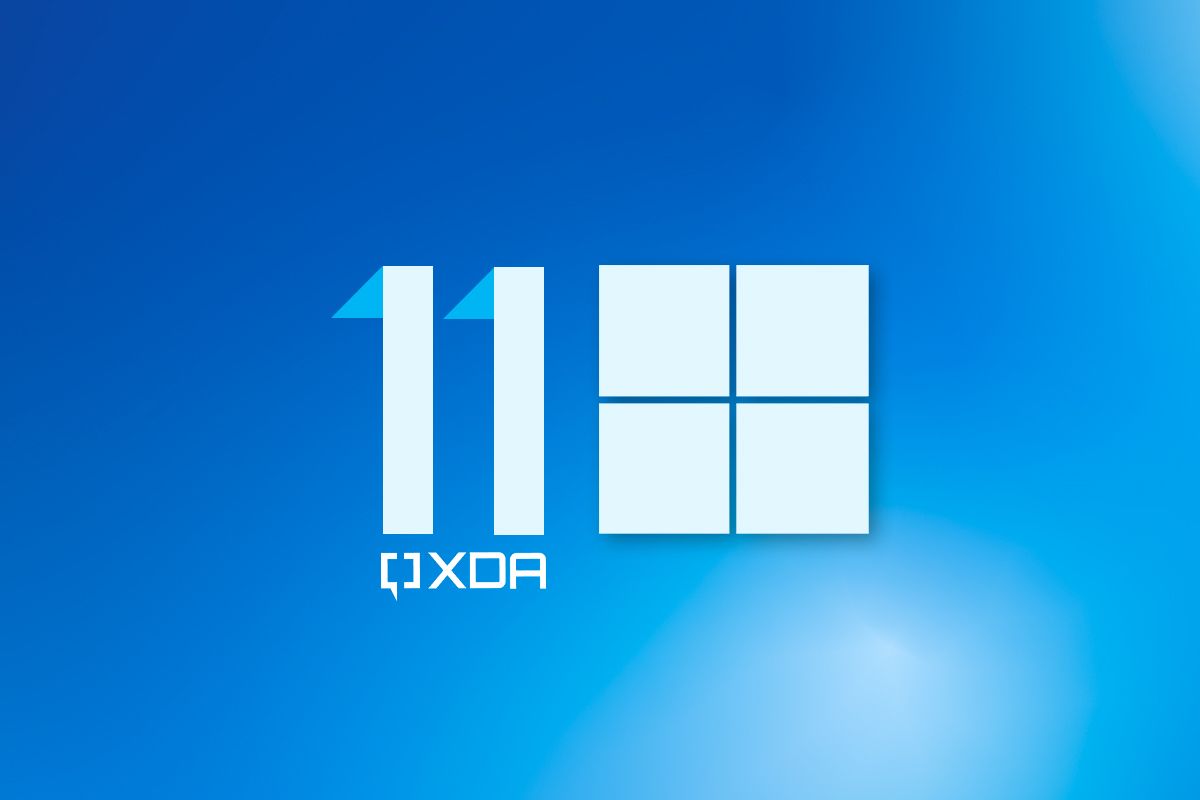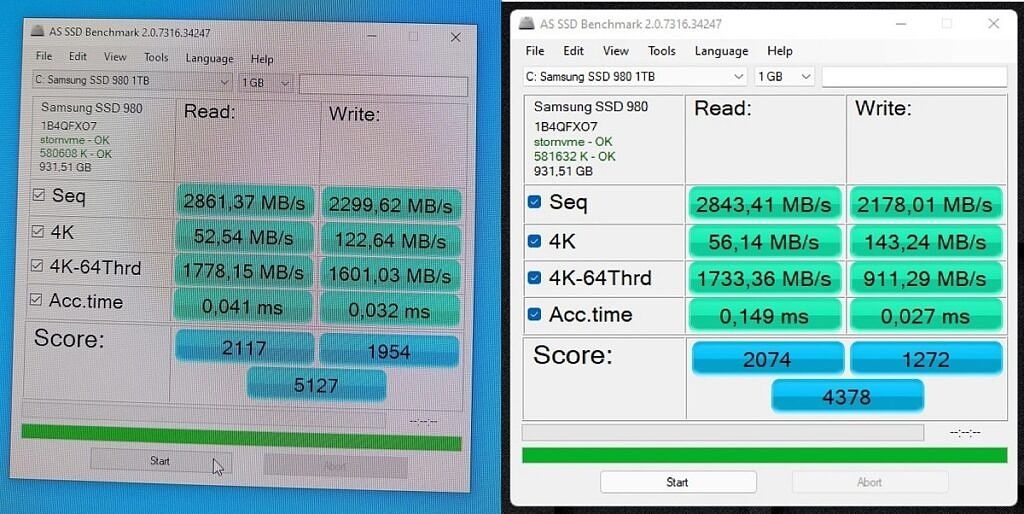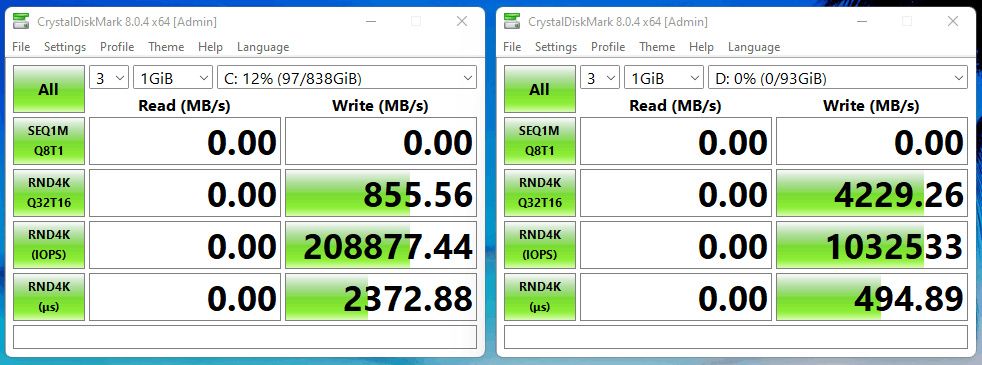Windows 11 is once again being causing some issues for users, this time with numerous reports of slower performance of NVMe SSDs using the operating system. The reports can be found on multiple Reddit threads, as well as on Microsoft's support forums (via Neowin), and they're actually not new. Reports on this problem go back a few months, when Windows 11 is still in preview, but the complaints persist two months after launch.
According to the reports, backed up by CrystalDiskMark and AS-SSD, popular benchmarking applications for PC drives, performance on Windows 11 can be multiple times slower in some cases for NVMe drives. The problem specifically affects random write performance, with most other metrics unaffected, but the difference is still very significant. The benchmark below, shared on Reddit by user MahtiDruidi, compares the same SSD running Windows 10 and Windows 11.
The source of the issue hasn't been clearly identified yet, but some possible causes have popped up. One thing that users initially pointed to was that virtualization-based security (VBS) causes SSD performance to drop, but it doesn't make up the entirety of the difference between Windows 10 and Windows 11.
A more recent discovery suggests that the issue has to do with which drive contains the Windows 11 installation. If you run the benchmark on a secondary drive, the results will be in line with the advertised values for the SSD. The image below, shared by user PleasedPen25317 on Microsoft's support forums, shows just how big the difference can be, comparing two 2TB Samsung 980 Pro NVMe SSDs on the same machine.
The Samsung 980 Pro is a PCIe Gen 4 SSD, but older PCIe Gen 3 drives are affected, too. The difference is especially stark on a drive with theoretical speeds as high as this one, with the non-Windows drive being almost five times faster.
Another recent report claims that the latest Windows 11 update, build 22000.348, slightly improved SSD performance, though it's still a far cry from what was seen on Windows 10. A Microsoft engineer on Reddit acknowledged the issue three months ago when Windows 11 was still in preview, but it seems that a fix didn't make it in time for launch, and two months later, the problem persists. As users shine more light on potential causes, hopefully Microsoft will get around to fixing the problem more quickly.
Windows 11 has been affected by a few issues already, including some that specifically reduced the performance of AMD processors, plus some apps simply not working. Those issues have received fixes in the meantime, so we can only hope the same will happen here.



